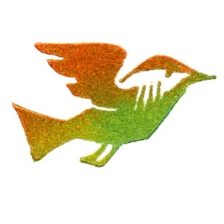Children and young people have the potential to be more resilient, responsible, capable and creative than we give them credit for. Yet their lives are becoming ever more scheduled, controlled and directed.
If children are to enjoy and make the most of their lives, we need to revisit and revise our ideas of what a good childhood looks and feels like. We need to reconnect children with the people and places around them, and with the natural world on their doorstep. We need to accept that it is natural and healthy for children to take risks, make mistakes, have everyday adventures and test themselves and their boundaries.
In short, we need to expand the horizons of childhood.
Tim Gill, Rethinking Childhood
At Wheatfen Forest School we passionately believe that children and young people need more freedom:
- Freedom to explore and experience the joy and wonder of nature
- Freedom to follow their natural curiosity and creative impulses
- Freedom to play and choose how they spend their time
- Freedom to think and make decisions for themselves
- Freedom to learn about things that genuinely interest them
- Freedom to experience a healthy range of emotions
- Freedom to think outside the norm, speak and act without fear of judgement
We also strongly feel that if children don’t get the opportunity to connect with the natural world today, they won’t fight to protect it tomorrow.
Ted Ellis once famously described the Norfolk Broads as “A breathing space for the cure of souls”. In a pressurised, results-driven society, where youth mental health is in decline, we aim to provide a breathing space for children and young people at Wheatfen, through the inspirational process that is Forest School.
Through our Saturday Forest School clubs and alternative education provision, we aim to foster healthy self-esteem, independence, resilience, creativity, co-operation and autonomy, as well as a deeply personal knowledge, respect and care for the natural world. We take a learner-led, play-centred, holistic and experiential approach, where participants engage with the woodland and fen in an exploratory, sensory and physical way.
We strive to create a long-term relationship between young people and Wheatfen – for the benefit of both – over the years and through the changing seasons. We run groups for toddlers all the way up to teens, so children can grow from Tiny Acorns to Mighty Oaks!
What is Forest School?
Forest School is an inspirational process which offers ALL participants regular opportunities to achieve through hands-on learning experiences in a woodland environment. Here is a wonderful short video by Forest School Lou which illustrates perfectly the forest school approach. Forest School follows six key principles:
1: Forest School is a long-term process of frequent and regular sessions in a woodland or natural environment, rather than a one-off visit. Planning, adaptation, observations and reviewing are integral elements of Forest School.
2: Forest School takes place in a woodland or natural wooded environment to support the development of a relationship between the learner and the natural world.
3: Forest School aims to promote the holistic development of all those involved, fostering resilient, confident, independent and creative learners.
4: Forest School offers learners the opportunity to take supported risks appropriate to the environment and to themselves.
5. Forest School is run by qualified Forest School practitioners who continuously maintain and develop their professional practice.
6. Forest School uses a range of learner-centred processes to create a community for development and learning.
At Forest School all participants are viewed as:
- equal, unique and valuable
- competent to explore & discover
- entitled to experience appropriate risk and challenge
- entitled to choose, and to initiate and drive their own learning and development
- entitled to experience regular success
- entitled to develop positive relationships with themselves and other people
- entitled to develop a strong, positive relationship with their natural world
For more information please visit The Forest School Association
